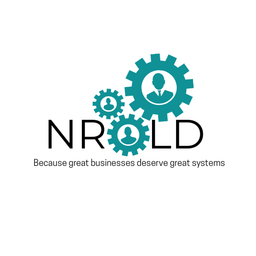Find a Co-Founder as a Young Entrepreneur.
A great co-founder is more than just a business partner. They are your support system, your sounding board, and the person who complements your skills. The relationship is often compared to a marriage, and for good reason.

This guide provides a step-by-step framework to help you find and choose the perfect co-founder.
Step 1: Look in the Mirror First: Define What You Need
Before you can find the right person, you must deeply understand yourself and what your business needs. Many young entrepreneurs skip this step and jump straight into searching. This is a mistake. You can't find your missing piece if you don't know what shape it is.
1. Identify Your Strengths and Weaknesses.
Be brutally honest with yourself. What are you truly great at? And where do you struggle? You are looking for someone who fills your gaps.
- Actionable Task: Create a simple T-chart. On one side, list your strengths (e.g., "Vision," "Public Speaking," "Sales"). On the other side, list your weaknesses (e.g., "Writing Code," "Financial Modeling," "Attention to Detail").
Example:
Imagine you are a "Hustler"—a non-technical founder who is amazing at pitching ideas and building relationships.
This chart clearly shows you need a "Hacker"—a technical co-founder who loves building the product and managing the details.
2. Define Your Ideal Co-Founder's Traits.
This goes beyond skills. You are looking for a partner for a long and difficult journey. Shared values are more important than a perfect resume.
- Shared Vision: Do they get excited about the same future you do?
- Complementary Work Ethic: If you work 16 hours a day, will a co-founder who wants a 9-to-5 life be a good fit?
- Trustworthiness: Can you trust this person with your idea, your money, and your future?
- Resilience: How do they handle failure and stress?
Step 2: Start Your Search: Where to Look for Potential Co-Founders
Now that you know who you are looking for, it is time to start searching. Think of this as casting a wide net in the right ponds.
1. Your Existing Network (The Inner Circle)
This is often the best place to start. These are people you already know and trust.
- Friends, Classmates, and Colleagues: Do you know someone from a university class who was incredibly smart? Or a friend who has a skill set you admire?
- Pro: You already have a foundation of trust.
- Con: Doing business with friends can be risky if things go wrong.
2. University and School Resources (Your Campus Goldmine)
As a young entrepreneur, your campus is one of your greatest assets.
- Entrepreneurship Clubs and Centers: These are hubs for like-minded people. Go to meetings, participate in events, and make it known what you are working on.
- Professors and TAs: Your professors are often well-connected. Go to their office hours, tell them about your idea, and ask if they know any students or alumni who might be a good fit.
- Hackathons and Startup Weekends: These events are designed to build things quickly. They are one of the best ways to meet potential co-founders and test your chemistry by working together under pressure.
Example:
A business student with a great idea for a healthcare app goes to a campus-wide "Health-Tech Hackathon." There, she teams up with a computer science student and a pre-med student. They work together for a weekend, build a basic prototype, and realize they make a great team.
3. Online Co-Founder Matching Platforms
These websites are like dating apps for startups. They can connect you with people from all over the world.
- Top Platforms: YC Co-Founder Matching, CoFoundersLab, AngelList, and even LinkedIn are great places to search.
- Actionable Advice: Create a very specific profile. Don't just say, "Looking for a technical co-founder." Say, "I'm a non-technical founder building a mobile app for sustainable fashion. I have a detailed business plan and early market validation. I'm looking for a skilled iOS developer who is passionate about sustainability to join as a co-founder."
4. Industry Events and Meetups
Go to where your ideal co-founder hangs out. If you need a designer, go to design meetups. If you need an expert in AI, go to AI conferences. Don’t just go to network; go to learn. Show genuine interest in the subject matter.
Step 3: The "Dating" Phase: How to Evaluate a Potential Co-Founder
You've found a few promising candidates. Now what? You need to move slowly and deliberately. This is the "dating" phase before the "marriage."
1. Start with a Small, Defined Project.
The best way to know if you can work with someone is to actually work with them. Don't just talk about the big vision. Get your hands dirty together.
- Project Ideas: Build a simple landing page, conduct 20 customer interviews, or create a detailed pitch deck.
- What you learn: This test will reveal their work ethic, their communication style, and how they handle disagreements far better than any interview ever could.
2. Have the Hard Conversations Early.
It can feel awkward to talk about money and commitment right away, but it is essential. You must be on the same page about the tough stuff.
- Equity Split: How will you divide ownership? Is it 50/50, or does one person get more for bringing a unique skill or initial capital?
- Roles and Responsibilities: Who is the CEO? Who has the final say on product decisions vs. marketing decisions?
- Time Commitment: Is this a full-time commitment for both of you, or is someone still working a day job?
- Personal Finances: How long can each of you survive without a salary?
- The Big Vision: What does success look like? Is it building a billion-dollar company, or creating a profitable lifestyle business? Do you want to raise money from VCs or bootstrap?
Step 4: Make It Official: The Co-Founder Agreement
Once you have worked on a project together and had the hard conversations, it is time to make it official. A Co-Founder Agreement is a legal document that outlines your partnership. Think of it as a "business prenup." It protects everyone involved if things change.
Your agreement should always include:
- Roles and Responsibilities: Clearly defined.
- Equity Ownership: The exact percentages.
- A Vesting Schedule: This is critical. Equity should be earned over time (usually four years with a one-year "cliff"). This ensures that if someone leaves early, they don’t walk away with a huge chunk of the company they didn’t help build.
- Intellectual Property (IP) Assignment: This states that all work done for the startup is owned by the company, not the individuals.
Crucial Advice: Do not use a template you find online without having a lawyer review it. This is a small investment that can save you from huge headaches later.
The right co-founder won't just help you build a product; they will help you build a company and make the incredible, difficult journey of entrepreneurship one you can share. Action builds business. Start small, start smart—then scale.

This content is AI-assisted and reviewed for accuracy, but errors may occur. Always consult a legal/financial professional before making business decisions. nrold.com is not liable for any actions taken based on this information.


